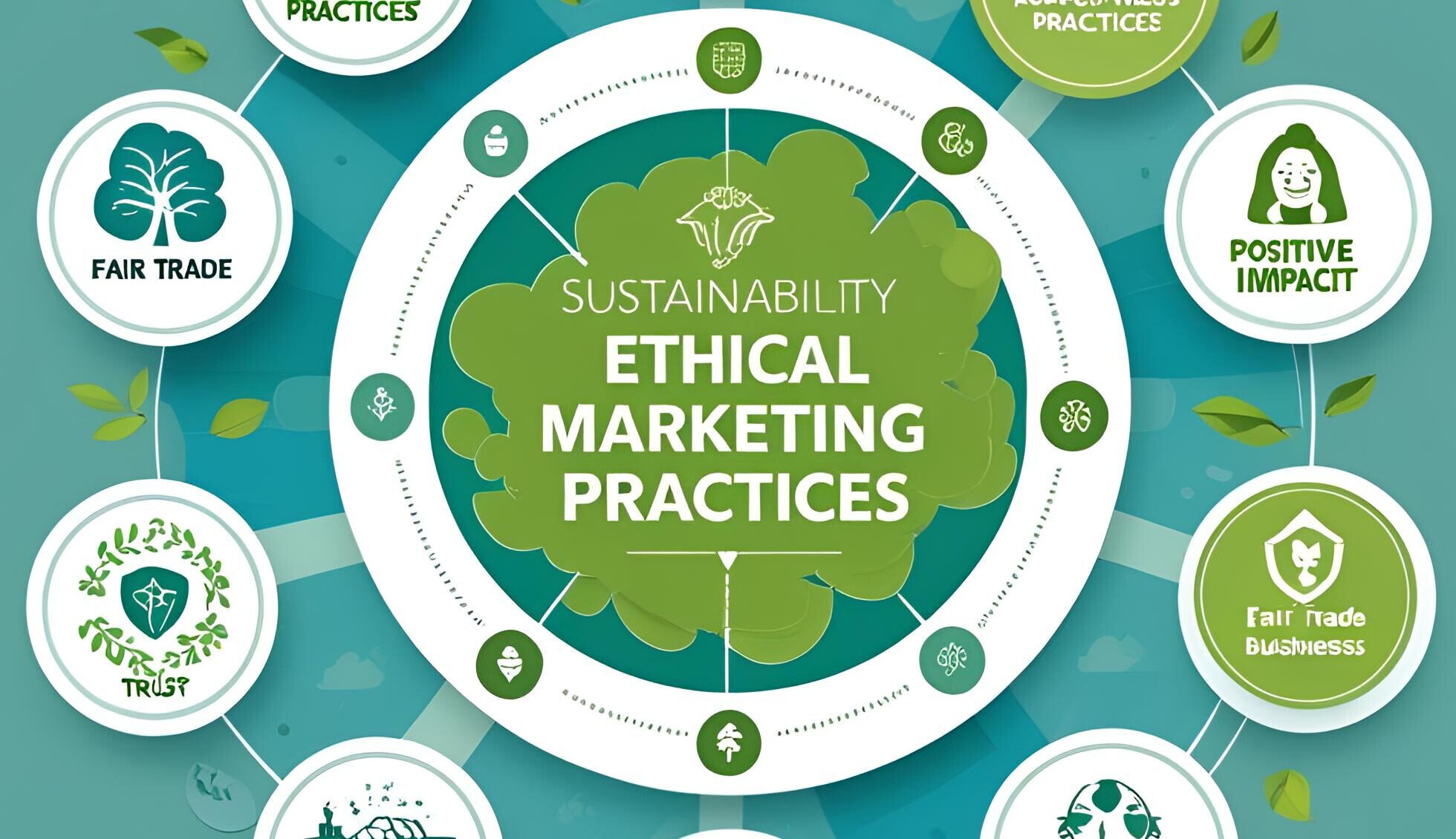Sustainability and Ethical Marketing: Prioritizing Sustainability and Ethics in Marketing Practices to Build Trust and Credibility
Introduction:
In today’s conscious and connected world, brands are no longer judged solely by the quality of their products or the creativity of their advertisements. Instead, they are increasingly evaluated based on their values, transparency, and impact on society and the environment. Modern consumers demand more — they want brands to act with integrity and take responsibility for their influence.
As a result, sustainability and ethical marketing have evolved from optional add-ons into essential elements of a brand’s identity. Companies that embrace these values not only meet growing consumer expectations but also strengthen their position in a competitive, values-driven marketplace.
What Is Sustainability and Ethical Marketing?
Sustainability and ethical marketing involve promoting products or services in ways that demonstrate a genuine commitment to environmental protection, social responsibility, and ethical business practices. This approach focuses on minimizing harm, maintaining transparency, and fostering lasting relationships with customers and stakeholders.
Primary Goals of Ethical and Sustainable Marketing
- Build Trust – Earn consumer confidence through honest, responsible actions.
- Enhance Reputation – Foster a strong, positive brand image.
- Drive Long-Term Success – Invest in sustainable practices that support continued growth.
- Promote Positive Values – Encourage fairness, inclusivity, and environmental awareness.
Why Sustainability and Ethics Matter in Marketing
Several key reasons highlight the importance of these principles:
- Consumer Trust: Shoppers are more likely to support brands that align with their personal values.
- Reputation Management: A responsible brand image reduces risk and enhances credibility.
- Differentiation: Ethical behavior helps brands stand out in saturated markets.
- Sustainable Growth: Long-term planning ensures stable success and reduces reputational risks.
Key Components of Sustainability and Ethical Marketing
To adopt these values effectively, brands should prioritize:
Environmental Sustainability
- Reduce carbon footprint
- Use sustainable packaging
- Promote eco-friendly alternatives
Social Responsibility
- Support fair labor practices
- Champion diversity and inclusion
- Engage in community outreach
Ethical Conduct
- Avoid misleading claims
- Respect consumer privacy
- Practice fair competition
Future-Oriented Thinking
- Emphasize longevity over short-term profits
- Innovate with sustainable development goals in mind
Benefits of Embracing Sustainability and Ethics
- Stronger Consumer Trust
Customers show greater loyalty to brands that reflect their values. - Enhanced Brand Image
Ethical marketing improves public perception and reputation. - Improved Loyalty and Retention
Value-based marketing builds deeper emotional connections with customers. - Competitive Edge
Purpose-driven consumers are more likely to support responsible brands.

Core Principles to Follow
- Transparency
Share your business practices openly. - Authenticity
Remain true to your values — avoid exaggeration. - Accountability
Acknowledge your environmental and social impact. - Sustainability
Strive to reduce harm while maximizing positive change.
Best Practice Guidelines for Success
- Conduct a Sustainability Audit
Assess your brand’s current impact and identify areas for improvement. - Develop a Clear Strategy
Set realistic, measurable goals for reducing your environmental footprint. - Communicate Values Effectively
Use storytelling to share your mission with customers and stakeholders. - Engage with Stakeholders
Listen to your community — including employees, customers, and partners — to improve your initiatives.
Challenges to Consider
While rewarding, this path presents several hurdles:
- Greenwashing Risks
Vague or misleading claims can erode consumer trust. - Initial Costs
Ethical sourcing and sustainable materials may increase upfront expenses. - Conflicting Expectations
Different stakeholders might prioritize different values or goals. - Measurement Difficulties
Evaluating ethical impact can be complex and time-consuming.
Looking Ahead: Ethics Will Define the Future of Marketing
Tomorrow’s successful businesses will be built on trust, purpose, and partnership. Consumers no longer just buy products — they buy into values. In this evolving environment, ethics and sustainability in marketing are not fleeting trends; they’re becoming essential standards.
Brands that lead with transparency and integrity will foster stronger consumer relationships and deliver long-term, meaningful impact. On the other hand, those that ignore these values risk losing relevance in a world that increasingly rewards conscious capitalism.
Conclusion
Sustainability and ethical marketing are no longer optional — they’re essential. By adopting responsible practices, brands can build trust, enhance their reputation, and ensure long-term growth. More importantly, they contribute to a healthier planet and a fairer society.
To stay competitive, businesses must move beyond profit and embrace their responsibility toward people and the planet. Authenticity, transparency, and accountability are not just best practices — they form the foundation of sustainable success.
Key Takeaways
- Ethics and sustainability matter — Consumers expect responsible behavior from brands.
- Transparency builds trust — Be honest about your practices and goals.
- Authenticity resonates — Genuinely uphold your stated values.
- Long-term thinking wins — Sustainable strategies ensure enduring success.
FAQs
Q1: What is sustainability and ethical marketing?
A: It refers to promoting products or services while prioritizing environmental, social, and ethical standards.
Q2: Why is this marketing approach important?
A: It builds consumer trust, enhances brand reputation, and supports long-term success.
Q3: What are the key components of ethical marketing?
A: Environmental sustainability, social responsibility, ethical conduct, and future-focused planning.
Q4: How can businesses implement it effectively?
A: Through sustainability audits, clear strategies, transparent communication, and stakeholder engagement.
Q5: What are the major benefits?
A: Increased trust, improved reputation, customer loyalty, and a competitive edge.
Q6: Are there any challenges?
A: Yes, including the risk of greenwashing, higher initial costs, and measurement complexity.
Q7: How do you measure the impact?
A: By tracking metrics like consumer engagement, environmental savings, and social contributions.
Q8: What does the future look like for this kind of marketing?
A: Ethics will take center stage. Brands will thrive by being transparent, sustainable, and people-focused.
